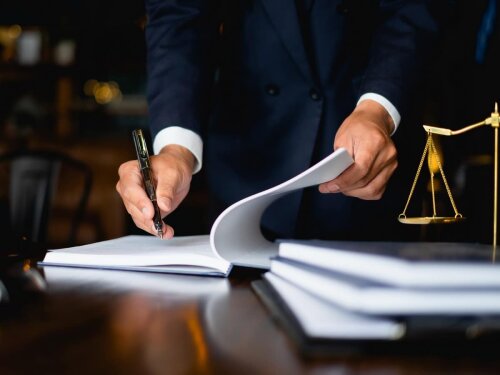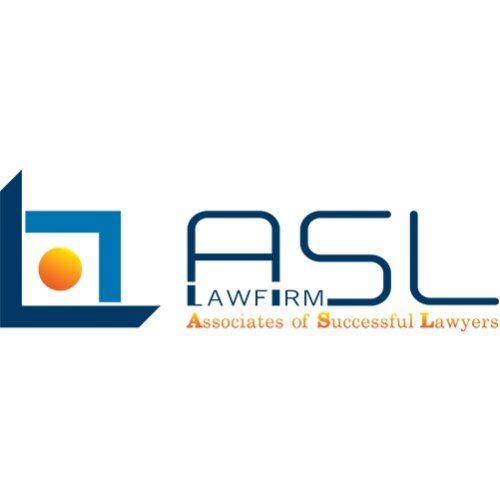Best Commercial Litigation Lawyers in Vietnam
Share your needs with us, get contacted by law firms.
Free. Takes 2 min.
Or refine your search by selecting a city:
List of the best lawyers in Vietnam
![[DDC] DONG DU INTERNATIONAL ACCOUNTING, TAXES & LEGAL CONSULTING GROUP HCMC VIETNAM](https://lawzana.com/storage/firms/2690/17617306202399.jpg)
About Commercial Litigation Law in Vietnam
Commercial litigation in Vietnam refers to the legal process used to resolve disputes arising from commercial transactions and relationships. This branch of law covers conflicts between businesses, such as contract breaches, partnership disagreements, supply chain issues, and more. The Vietnamese legal system recognizes both litigation in courts and alternative dispute resolution methods such as arbitration and mediation. As Vietnam's economy continues to grow and globalize, commercial litigation has become increasingly important for both local and foreign businesses operating in the country.
Why You May Need a Lawyer
Commercial disputes can be complex, and Vietnamese law is continually evolving. There are several situations in which seeking legal advice or representation is crucial, including:
- Conflicts over contract terms, performance, or termination between partners, suppliers, or customers
- Disagreements over payment or delivery of goods and services
- Intellectual property disputes, such as trademark or copyright infringements related to business operations
- Issues arising from mergers, acquisitions, or joint ventures
- Disputes involving breach of confidential information or trade secrets
- Cross-border commercial disputes involving Vietnamese and foreign entities
- Disputes arising from anti-competitive behavior or unfair trade practices
- Difficulty navigating Vietnamese court procedures or language barriers, especially for foreign businesses
A skilled commercial litigation lawyer can help clarify legal rights and obligations, develop effective dispute resolution strategies, and represent clients in negotiations, mediation, arbitration, or court proceedings.
Local Laws Overview
Commercial litigation in Vietnam is governed by several key legal documents and regulations:
- Vietnam Civil Code: Defines the general principles of civil relationships, including contracts and liability.
- Law on Commercial: Governs commercial activities conducted by individuals and organizations, contracts, and dispute resolution mechanisms.
- Civil Procedure Code: Sets out procedures for court litigation, including how cases are filed, heard, and adjudicated.
- Law on Arbitration: Establishes rules for resolving disputes outside of courts through arbitration.
- Intellectual Property Law: Addresses commercial disputes involving intellectual property rights.
Vietnamese law recognizes both judicial (court-based) and non-judicial (arbitration and mediation) avenues for resolving commercial disputes. Many business contracts in Vietnam include clauses specifying how disputes should be resolved, such as which court or arbitration body has jurisdiction. The legal process may involve several stages, including negotiation, attempted mediation, court filing, and possible appeal. Foreign entities may face additional procedural requirements, such as the legalization and translation of documents.
Frequently Asked Questions
What is considered a commercial dispute in Vietnam?
A commercial dispute in Vietnam typically involves disagreements or conflicts arising from business relationships or transactions. This can include contract breaches, payment issues, disputes between shareholders, or conflicts with suppliers or customers.
Can foreign companies participate in litigation in Vietnam?
Yes, foreign companies can participate in commercial litigation in Vietnam but must comply with specific legal procedures, such as appointing a legal representative and legalizing certain documents.
What are the main methods for resolving commercial disputes in Vietnam?
Commercial disputes in Vietnam can be resolved through negotiation, mediation, arbitration, or litigation in court. The chosen method often depends on the terms negotiated in the contract and the parties' preferences.
How long does it take to resolve a commercial dispute in court?
The timeframe can vary significantly depending on the complexity of the case and the workload of the relevant court. Simple cases may be resolved in several months, while complex multi-party disputes can take years.
Is arbitration a common way to settle disputes in Vietnam?
Arbitration is increasingly popular, especially among foreign businesses, because it can be faster and more flexible than traditional litigation. Several arbitration centers, such as the Vietnam International Arbitration Center (VIAC), operate in the country.
Are Vietnamese court judgments recognized abroad?
Recognition and enforcement of Vietnamese court judgments in other countries depend on bilateral or multilateral treaties and each country's domestic laws. In many cases, separate legal procedures are required to enforce judgments abroad.
Do I need a lawyer to represent me in commercial litigation?
While Vietnamese law does not always require legal representation, having a lawyer is strongly recommended due to the technical nature of proceedings, potential language barriers, and the need to navigate procedural rules.
What are the costs associated with commercial litigation?
Costs typically include court fees, legal fees, expenses for expert witnesses, and administrative costs. The total cost will vary depending on the complexity and duration of the case.
Can I appeal a commercial court decision?
Yes, parties may appeal decisions rendered by courts of first instance. Appeals are heard by higher courts, and the process follows strict procedural rules and deadlines.
How can I enforce a court judgment in Vietnam?
Judgments are enforced through the civil judgment enforcement agency. If the losing party does not comply voluntarily, the prevailing party can request enforcement actions, which may involve asset seizure or other legal measures.
Additional Resources
If you need further information or assistance, consider contacting the following organizations and resources:
- Vietnam International Arbitration Center (VIAC): Provides arbitration and mediation services for commercial disputes
- Vietnam Bar Federation: The national association for lawyers in Vietnam, which can help locate qualified legal experts
- Ministry of Justice: Oversees legal systems and regulations, including commercial dispute resolution
- Civil Judgment Enforcement Agency: Responsible for enforcing court decisions in Vietnam
- Chambers of Commerce and Industry: Can assist with dispute resolution initiatives and provide guidance for businesses
Next Steps
If you are facing a commercial dispute or anticipate potential legal issues, consider the following steps:
- Review all relevant contracts and documents carefully to understand your rights and obligations
- Gather any evidence or correspondence related to the dispute
- Consult with a qualified Vietnamese commercial litigation lawyer to assess your situation and discuss available options
- Consider whether negotiation, mediation, or arbitration might resolve the issue more efficiently than court litigation
- If court action is needed, ensure all filings and documentation comply with Vietnamese legal requirements
- Follow up with the relevant authorities or agencies if enforcement of a court or arbitration award becomes necessary
- Stay informed about changes in Vietnamese commercial law that could impact your business or resolve disputes more quickly
Seeking professional legal advice early in the process can help protect your interests and lead to better outcomes in commercial litigation matters in Vietnam.
Lawzana helps you find the best lawyers and law firms in Vietnam through a curated and pre-screened list of qualified legal professionals. Our platform offers rankings and detailed profiles of attorneys and law firms, allowing you to compare based on practice areas, including Commercial Litigation, experience, and client feedback.
Each profile includes a description of the firm's areas of practice, client reviews, team members and partners, year of establishment, spoken languages, office locations, contact information, social media presence, and any published articles or resources. Most firms on our platform speak English and are experienced in both local and international legal matters.
Get a quote from top-rated law firms in Vietnam — quickly, securely, and without unnecessary hassle.
Disclaimer:
The information provided on this page is for general informational purposes only and does not constitute legal advice. While we strive to ensure the accuracy and relevance of the content, legal information may change over time, and interpretations of the law can vary. You should always consult with a qualified legal professional for advice specific to your situation.
We disclaim all liability for actions taken or not taken based on the content of this page. If you believe any information is incorrect or outdated, please contact us, and we will review and update it where appropriate.
Browse commercial litigation law firms by city in Vietnam
Refine your search by selecting a city.















